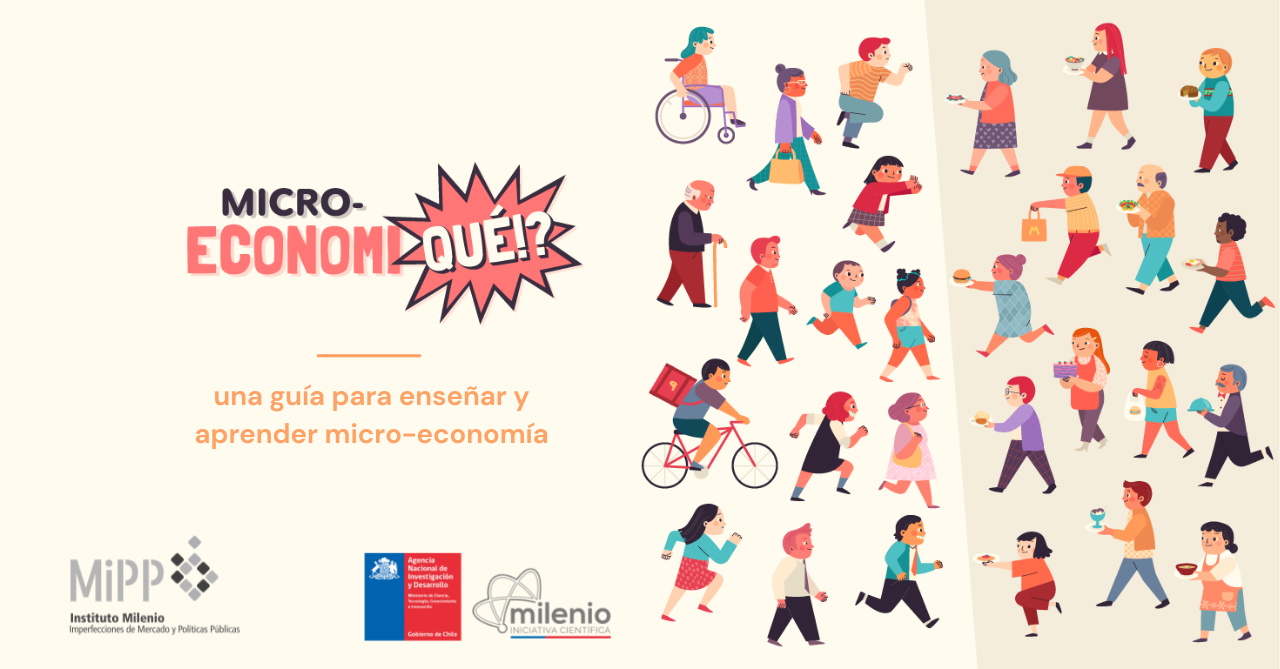
The first book released by the MIPP Millennium Institute, aims at being a comprehensive and easy-to-understand guide to teaching and learning microeconomics. The book complements the curriculum of the “Economics and Society” subject of secondary education, and it is available for download, free of charge, at economi-que.cl.
The current levels of financial education in Chile are low. This has been demonstrated by the results of the PISA test, an international standardized test designed to evaluate education systems, whose 2018 results showed that about 30% of Chilean students do not possess the minimum required skills in financial literacy. As a consequence, these students then go out into the world lacking even the basic notions on the matter, as for many it may seem distant and complex. That is precisely what the Micro-economi-qué book seeks to demystify.
“Our main objective is to educate young people, since there are currently few books or material available for this age group on economic issues,” says Andrea Canales, researcher at the MIPP Millennium Institute and author of the book. “The book fulfills a dual purpose, in that it can be simultaneously used by any student who wants to learn economics, as well as teachers who want to deepen their knowledge and access interactive exercises for their lectures” adds Canales.
The book explains various topics, such as: market forces, market equilibrium, elasticity, and perfect and imperfect competition, to name a few. The content is introduced together with a series of examples from everyday life to illustrate the terms of actions and economic decisions that we routinely make, and also relates them to impactful or historical events. In addition, it includes didactic activities that facilitate the reader’s self-assessment of their knowledge and learning progress. “Although the book is aligned with the high school curriculum, it is suitable for everyone, since what we do is explain the concepts with examples closer to those that students experience daily. An example of this is how we explain complex issues such as collusion, in which we first show them a perfect market and how this can be affected when companies collude, exemplifying with known cases ”, explains the author, who holds a PhD in Systems Engineering.
Another objective of the book is to contribute to reducing the gender gap in financial knowledge. A 2018 study by the UC Center for Public Policy revealed that men perform better in financial education than women, which has been linked to existing gender roles in society, as a consequence of which, women traditionally remain relegated from product management and financial language. “This is very serious, since many of these women will ultimately end up being the head of their households, and will manage the family’s resources and income. Believe it or not, that is also economics, and in order to make the right decisions, it is important to achieve a certain level of financial literacy ”, argues Canales.
Economics tries to understand how people satisfy their needs under finite resources. The book is designed to make the reader feel that these issues are not so strange or difficult to understand, since, as we grow, the economic decisions that we must make grow and become more complex, but with a good base of understanding we can overcome them in the best way possible.
The book will only be available in digital format, and it can be downloaded for free for mobile devices or computers from:


MIPP Chile 2025